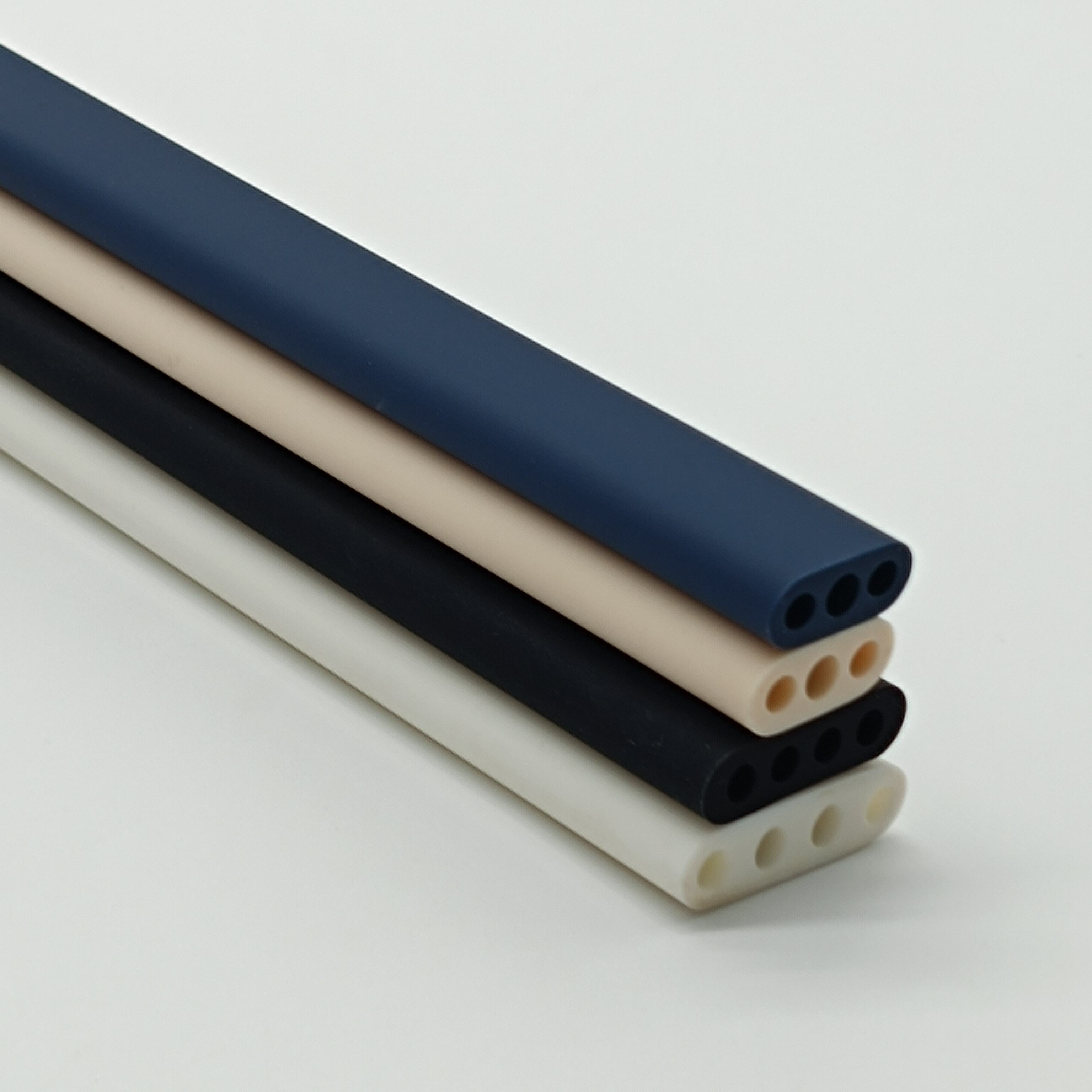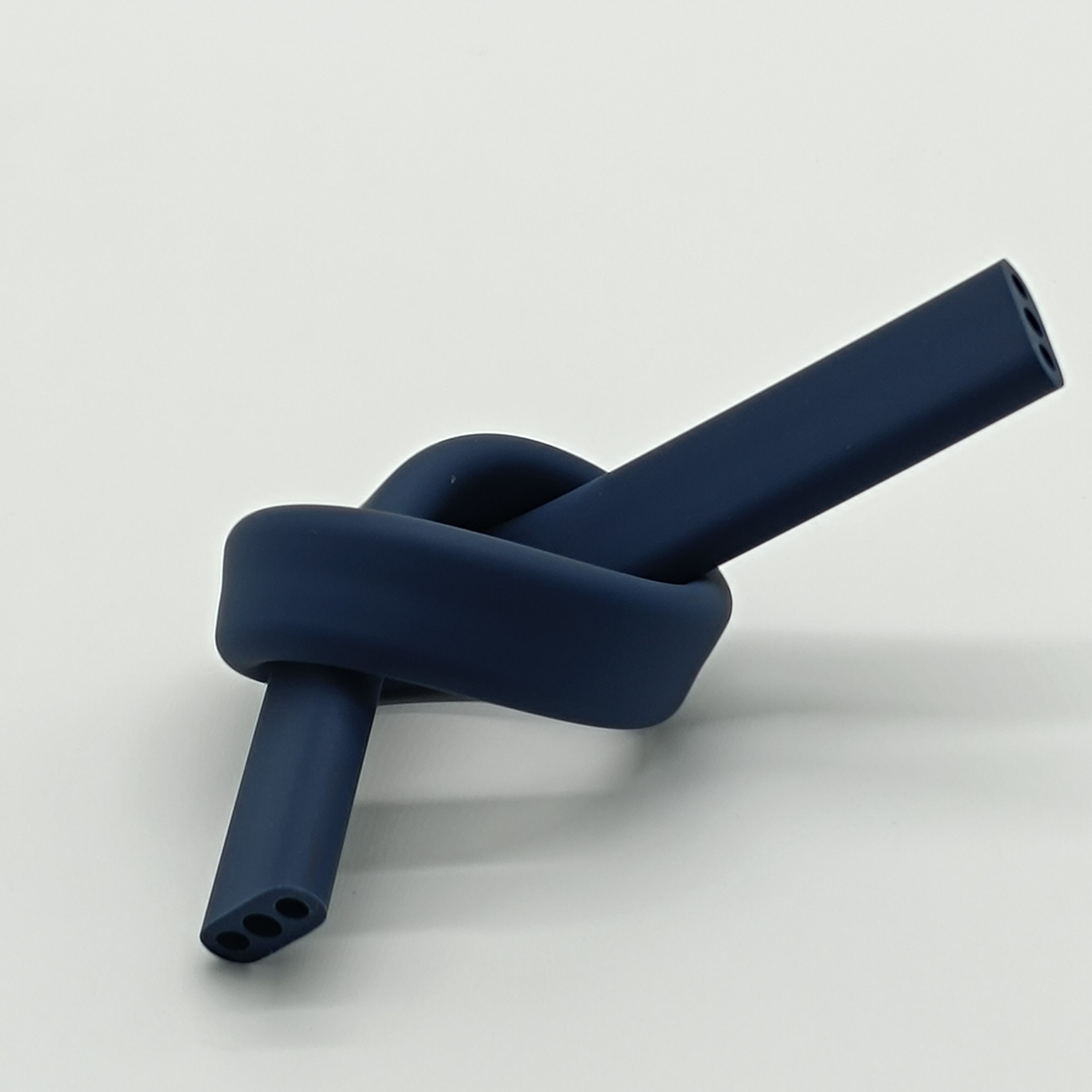The Importance of Flexible and Hygienic Flow Solutions
Why Silicone Tubing Is a Game-Changer for Pumping Systems
Peristaltic Pump Silicone Tubing has become a cornerstone of modern fluid transfer systems, especially in industries where hygiene, precision, and resistance to contamination are critical. Unlike rigid tubing or traditional piping, silicone tubing offers unmatched flexibility, allowing for easy installation and adaptability to varying layouts. More importantly, when integrated with peristaltic pumps, it facilitates a closed-system operation where the fluid never contacts the pump mechanism itself. This design greatly reduces the chance of contamination and equipment wear. Silicone's inherent chemical resistance, combined with its smooth internal surface, ensures that fluids pass through without leaching, stagnation, or unwanted reactions. The tubing's elasticity is also critical for peristaltic action, enabling consistent compression and decompression that ensures accurate dosing or transfer. In fast-paced production environments, the ability to maintain sterility and minimize downtime is a substantial advantage, and that is exactly what Peristaltic Pump Silicone Tubing delivers.
Performance Under Pressure and Temperature Extremes
One of the most notable benefits of Peristaltic Pump Silicone Tubing is its ability to operate under a wide range of temperatures and pressures without compromising performance. This makes it an excellent fit for sectors like pharmaceuticals and food processing, where both hot and cold fluids must be managed with precision. The tubing typically handles temperatures ranging from -60°C to 200°C, making it ideal for autoclaving, steam sterilization, and handling heated liquids or viscous slurries. It also maintains its integrity under vacuum or moderate pressure, crucial for applications that involve pressure-driven dosing. In contrast to other materials, silicone tubing resists degradation even when exposed to repeated mechanical stress or thermal cycling. This longevity not only cuts replacement costs but also ensures uninterrupted production. Industries where process reliability is critical—such as biotech, cosmetics, and dairy—greatly benefit from the dependable performance of Peristaltic Pump Silicone Tubing in challenging conditions.

Applications in the Pharmaceutical Industry
Precision Dosing and Contamination Control
Pharmaceutical manufacturing demands the highest levels of cleanliness and precision, and Peristaltic Pump Silicone Tubing plays a key role in achieving these goals. Because the fluid only comes into contact with the inner walls of the tubing, there's minimal risk of cross-contamination between batches or ingredients. This feature is vital in sterile fill-and-finish operations, where accuracy and purity can impact product safety and regulatory compliance. The tubing's flexibility allows it to work seamlessly with automated peristaltic pumps for the controlled dosing of vaccines, biologics, or liquid medications. It is often used in upstream and downstream bioprocessing, where cell cultures and sensitive proteins are transferred. The smooth, non-stick surface reduces the risk of protein adhesion, which is essential in maintaining sample integrity. Moreover, the tubing can be easily replaced without disassembling the pump, simplifying changeovers between product lines and enhancing production speed. All these benefits make Peristaltic Pump Silicone Tubing an irreplaceable component in modern pharmaceutical facilities.
Sterilization and Biocompatibility Advantages
In pharmaceutical environments, sterilization is a non-negotiable requirement. Peristaltic Pump Silicone Tubing offers excellent compatibility with all standard sterilization methods, including autoclaving, ethylene oxide (EtO), and gamma irradiation. This durability under repeated sterilization cycles helps ensure that the tubing can be reused safely, reducing waste and operating costs. It is manufactured from medical-grade or platinum-cured silicone, ensuring it meets biocompatibility standards such as USP Class VI and ISO 10993. These certifications confirm that the tubing does not cause cytotoxic reactions or skin irritation, making it safe for contact with even the most sensitive formulations. The consistent dimensional stability of silicone tubing ensures tight fitting with connectors and reduced risk of leaks. Its resistance to kinking also ensures consistent fluid flow, which is essential in maintaining dosing precision. In sum, the sterilizability and safety profile of Peristaltic Pump Silicone Tubing make it the standard of choice for pharmaceutical and life sciences industries.
Integration in Food and Beverage Processing
Taste Preservation and Safety
In the food and beverage sector, maintaining the taste and quality of products during processing is paramount. Peristaltic Pump Silicone Tubing ensures that there is no chemical interaction between the tubing and the transported fluid, preserving the original flavor profile. Unlike traditional rubber or plastic tubing, silicone does not leach unwanted tastes, smells, or particles, which is crucial for high-quality juices, wines, sauces, and dairy products. Its food-grade formulation complies with regulations such as FDA 21 CFR 177.2600 and EU food contact materials directives. The non-reactive surface helps avoid bacterial growth and biofilm formation, making it ideal for hygienic applications. In industries where ingredients like sugar syrups or alcohols are transferred, the tubing maintains its elasticity and performance even under prolonged contact. This translates into better product consistency and longer shelf life, which ultimately benefits both the producer and the end consumer.
Compatibility with CIP and SIP Systems
Food production facilities prioritize cleaning and sanitation to ensure product safety and meet health codes. Peristaltic Pump Silicone Tubing is highly compatible with both Clean-In-Place (CIP) and Steam-In-Place (SIP) systems. Its high heat tolerance allows it to withstand repeated exposure to cleaning agents and steam, helping remove residual material and sterilize interior surfaces efficiently. Because of its resistance to acidic and alkaline cleaning chemicals, it can be used in aggressive wash cycles without degradation. Moreover, the tubing can be removed and replaced easily when necessary, minimizing downtime. Its smooth interior minimizes residue buildup, which reduces the frequency of cleaning and lowers water and chemical consumption. The flexibility and hygiene compliance of silicone tubing make it the preferred choice for food manufacturers looking to streamline operations while maintaining rigorous cleanliness standards. This results in improved productivity and consistent food safety performance across production cycles.
Support for Laboratory and Biotech Applications
Sterile Transfer of Biological Samples
In research labs and biotechnology environments, maintaining the sterility and integrity of biological samples is a top priority. Peristaltic Pump Silicone Tubing enables the sterile transfer of cells, reagents, and cultures between containers, bioreactors, or sample holders without exposing them to the external environment. The closed-loop system prevents contamination, which is vital for experiments that rely on uncontaminated conditions to generate reliable results. Silicone’s transparency also allows researchers to monitor fluid movement and detect bubbles or blockages easily. Since it is non-toxic and free from animal-derived components, the tubing can be used with sensitive cell lines or pharmaceutical-grade proteins. It is available in a variety of wall thicknesses and inner diameters, making it adaptable for various flow rates and sample sizes. These features contribute to its broad adoption in controlled environments like tissue culture labs, stem cell production, and diagnostic testing systems.
Ease of Integration into Analytical Equipment
Analytical instruments such as spectrophotometers, pH meters, and chromatography setups frequently rely on precise and controlled fluid delivery. Peristaltic Pump Silicone Tubing fits seamlessly into these applications due to its soft texture, which allows smooth compression without causing shear damage to fluids. The tubing can be customized in length and shape to fit compact benchtop instruments, helping optimize workspace efficiency. Because peristaltic pumps are often low maintenance and operate continuously without pulsation, they are ideal for long-duration testing or batch processing. Silicone tubing enhances this capability by offering excellent resistance to solvents and buffer solutions commonly used in chemical assays. Its clarity also makes it easy to confirm fluid movement or identify problems during runs. Together, these features make silicone tubing an integral part of analytical lab workflows, where precision, cleanliness, and flexibility are essential.
Specialized Use in Cosmetics and Personal Care
Safe Handling of Viscous Liquids and Creams
The cosmetics industry deals with a wide range of fluid viscosities, from thin lotions to thick creams and gels. Peristaltic Pump Silicone Tubing is capable of handling all these without losing performance. Its elasticity allows the pump to compress the tubing effectively, ensuring consistent and gentle transfer of viscous materials. This minimizes aeration and maintains product integrity, which is especially important for creams that must retain their texture and active ingredients. Moreover, because the tubing is inert, it won’t react with essential oils, alcohols, or preservatives commonly found in personal care products. By using silicone tubing in peristaltic pumps, cosmetic manufacturers can ensure that their formulations are not altered or contaminated during the filling or packaging stages. This not only improves quality but also reduces the risk of batch rejections or recalls.
Enhanced Efficiency in Filling and Packaging Lines
Speed and hygiene are vital for personal care product production, particularly in filling and packaging operations. Peristaltic Pump Silicone Tubing supports high-volume automated lines by providing a smooth, non-stick internal surface that allows for fast and accurate dispensing of lotions, conditioners, and serums. Its compatibility with cleaning agents makes it easy to switch between product types without risking contamination. Additionally, since the tubing can be replaced in seconds, it enables fast changeovers and supports short production runs, which are common in custom or seasonal product batches. The combination of chemical resistance, flexibility, and ease of maintenance makes silicone tubing a cost-effective and reliable solution for cosmetic manufacturers aiming to streamline their processes and maintain superior hygiene standards.
FAQ
What makes Peristaltic Pump Silicone Tubing suitable for sterile applications?
Its closed-loop design and biocompatible material prevent contamination, making it ideal for sterile environments like labs and pharmaceutical production.
How often should Peristaltic Pump Silicone Tubing be replaced?
Replacement depends on application stress, but typically after several hundred pump hours or sterilization cycles to maintain reliability.
Can silicone tubing handle both hot and cold fluids?
Yes, it performs well in extreme temperatures from -60°C to 200°C, making it suitable for both hot and cold process streams.
Is Peristaltic Pump Silicone Tubing compliant with food and pharma standards?
Absolutely, it meets FDA, USP Class VI, and EU regulations, ensuring it’s safe for use in both food-grade and medical applications.

